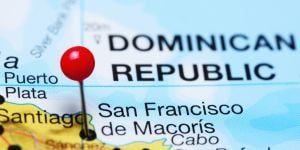
The Dominican Republic has indeed been attracting foreign investment over the past few decades, with notable increases since 2000. As of the latest available data up to 2022, foreign direct investment (FDI) has been a significant contributor to the country's economy, particularly in sectors such as tourism, manufacturing, and energy.
The primary assets are tourism, manufacturing, and services in the Free Trade Zones, as well as mining. Due to recent trends, it is one of the fastest-growing areas in real estate. Many foreigners have come to realize that the Dominican Republic is quite a gem in which to invest their money. So, if you're not looking for employment with a company but rather starting your own business, this guide should shed some light on the necessary steps to take to make this happen!
Why set up a business in the Dominican Republic?
The Dominican Republic is an ideal market for foreign investment for the following reasons:
- Social, political, and economic stability: The Dominican Republic has maintained relative stability in recent years, fostering an environment conducive to foreign investment;
- Attractive incentives and special regimes: The government offers various incentives and special regimes to attract foreign investment, including tax breaks, duty-free imports for certain industries, and streamlined administrative procedures;
- Government support: The government actively supports foreign investment through policies aimed at improving the business climate and fostering economic growth;
- Strategic location: The Dominican Republic's strategic location in the Caribbean makes it an attractive destination for trade and investment, serving as a gateway to North and South America;
- Connectivity: The country continues to invest in its transport, logistics, and telecommunications infrastructure, ranking well in terms of connectivity in Latin America and the Caribbean;
- Economic growth: While specific growth rates may vary, the Dominican Republic has historically maintained one of the highest growth rates in Latin America and the Caribbean;
- Free Trade Agreements: The Dominican Republic has signed Free Trade Agreements with numerous countries, providing preferential access to a market with millions of consumers worldwide;
- Foreign investment receiver: It remains one of the largest recipients of foreign investment in the Caribbean region, attracting investment across various sectors;
- Inflation rate: The Dominican Republic has experienced relatively low inflation rates compared to other countries in Latin America and the Caribbean, contributing to macroeconomic stability;
- Competitive workforce: The country boasts a competitive and qualified workforce, with educational and vocational training programs aimed at meeting the needs of various industries.
How do I set up a business in the Dominican Republic?
The first stage is to decide what type of business you want to register, and the Dominican Republic gives you five options for entities.
There is a large government body known as CEI-RD (Center for Exports and Investment in the Dominican Republic), which can help the new investor through the various stages of setting up a business.
Sole proprietor
This would be appropriate for small businesses such as consultancy, beauty parlors, technical advisors, etc., and is also the easiest way to set up a business. The cost for registration is RD 500, which is around USD 10.
Individual Limited Liability Company (EIRL)
This is again the individual's sole, but the assets are in the company's name, not the individual's, so that the individual is protected in the event of any liabilities or legal actions. This is recommended for companies that have more significant amounts of fixed assets or stock.
Limited Liability Company (Sociedad de Responsabilidad Limitada, SRL)
This category of company typically involves a partnership of two to fifty individuals and requires a minimum investment of RD$100,000, approximately equivalent to USD 10,000. The cost for establishment starts at around RD 9,000 or USD 200.
Once you have decided on the type of company you want to establish, you simply go to the company registration site and follow the instructions.
Joint Stock Company (Sociedad Anónima, SA)
You need at least two shareholders to form this type of company. Their liability will always be limited to the contribution to the capital they've made, just like in the LLC. Transferable shares with a minimum nominal value of 1 Dominican Peso represent the minimum capital of 30 million Dominican Pesos.
Simplified Joint Stock Company (Sociedad Anónima Simplificada, SAS)
This entity also requires two shareholders and the liability is again limited to the amount they have paid into the capital. The difference with the SA is that the value of shares will be established through the bylaws, and the amount of minimum capital is lower (3 million pesos). To incorporate, you will have to pay at least 10% into the capital.
We have been focusing on the two most common business types amongst foreigners – opening a real estate company and a restaurant.
Hopefully, our guide will give you a better understanding of the things you must be aware of and, most notably, how to begin and proceed when starting your own business in those two fields.
Opening a bank account for your business in the DR
Once you have decided on what type of business you want to form, followed all the necessary steps, and finally started the operation of your company, one crucial thing you must do is to set up a bank account in order to be able to operate thoroughly. Your bank account is central to your whole business and helps you manage all your expenses and payments correctly.
Banks in the Dominican Republic
You can choose from a variety of banks operating in the Dominican Republic:
Good to know:
There is only one international bank operating in the DR, Scotiabank.
Are Dominican banks considered to be safe?
Absolutely! Some might even say they are much safer than banks in Europe or the United States of America.
What makes these banks a safe bet for your money?
To be able to guarantee the payment of assets and liabilities, Dominican banks must put aside some money as a reserve. They are also checked up on from time to time to see if they have really ensured the payments (usually up to 6% of outstanding debts from credit cards, debit cards, and loans that are not secured).
The bank itself is not important because all of them must do it! One more reason to put your trust and money into Dominican banks is that, unlike banks in the United States and in Europe, the ones in the Dominican Republic do not engage in banking activities other than traditional ones. This means they are not involved in things such as derivatives, which could be a potential risk to your money as the banks are basically gambling with it.
Whenever you ask experts on the topic of banking, they would probably tell you that they think of Dominican banks as being very old school and somewhat conservative. Also, banking is widespread throughout the country and, therefore, available almost everywhere.
The only downside when it comes to banks in the Dominican Republic is borrowing money from them. You can invest your money or deposit it, but when it comes to loans, they will charge you up to 18% for mortgages or car loans.
If you are not interested in any loans, etc., you should not have a problem with banking in the DR.
What is required to open a company or real estate agency in the Dominican Republic?
To finalize the opening of a company or real estate agency in the Dominican Republic, you must carry out all the procedures contained in the registration of incorporation, like any company in any country.
However, these, due to their commercial activity, have other types of regulations and obligations.
Real estate companies must apply for a license to operate as the national executive, as stated in the Law for the Creation of the Dominican Association of Real Estate Brokers (ADCI) and Regulation of Real Estate Brokerage in the Dominican Republic.
Those are the requirements that the law establishes.
Whoever requests it must make sure to comply with the points mentioned above to obtain a bond created by some insurance company in the country.
Said deposit must be equal to RD 300,000. The estimated expense of establishing a company in the Dominican Republic is around USD 9,950 in the initial year. Subsequently, the annual company expenditures from the second year onward amount to USD 2,800. On average, the total fee for incorporating a company in the Dominican Republic is approximately USD 17,300.
Real estate agents must also obtain a license, must be members of the ADCI, and must not have any outstanding debt to practice as such.
Starting a real estate company is a great way to do business in the Dominican Republic.
This is a nation full of beautiful landscapes and exotic coasts, so more and more foreign visitors are interested in obtaining property within the Dominican territory.
However, it is also true that this type of company requires greater responsibility and attributes more outstanding commitment to the company members.
Opening a restaurant in the Dominican Republic: insights about costs, and tips to keep in mind
The opening will always depend on the savings you have when you want to realize this project. Remember that for the registration of your business name, you need a minimum of RD $ 5,000.
For ONAPI (Oficina Nacional de la Propiedad Industrial), the “National Intellectual Property Office”, you will need RD $9,000.00 altogether. This is only important if you want to register your commercial name or, for example, a trademark.
Of course, this is merely an estimate of what the lawyer and the notary public request.
Tips for opening a restaurant in the Dominican Republic
When you consider opening a restaurant, you should focus on making a different and balanced meal or outstanding service for your audience. Recall that this is a country where several gastronomic proposals have been established in the sectors where tourism visits. This means considerable competition.
We advise you to make a goal and plant it in your business strategy. Be aware of your investment and check the priorities you have before committing to any rental or buyer's agreement.
Inquire about the area where you want to settle down and look for a place that fits your needs. The location of your business can be a key factor for success. In the first instance, you can consult with companies conducting market research or accessing statistics in the tourism sector.
Reports on the growth of cities, routes, and other factors could be helpful. Look for a team of employees that you know and that effectively follow the instructions that you will give within it.
It is vital to be able to trust your team once you start operating in your business. Have the registrations to avoid overpaying. If you do not register, they close the business, and you will have to pay the extra money, which is most of the time unforeseen.
Always maintain a good attitude. Positivism makes everything you develop you can execute; remember that we are almost always the ones who limit ourselves.
Employees
Dominican Employment Law is strict and in favor of the employee, which is a good thing, contrary to many other nations in Latin America. Holidays, working hours, and minimum wages are strict, and employees must receive an extra month's wages at Christmas; this is called “doble sueldo”. If dismissed, they are entitled to compensatory payment based on the amount of time worked.
You are also required to register your employees with the Tesorería de la Seguridad Social, which is the Social Security Treasury, within three days following the hiring of employees or during the company's setting up. This can be done online, and they are advised to do so, as they will come to check up on you!
Taxation
All businesses have to register with the Taxation Office, known as the Dirección General de Impuestos Internos (DGII) or Impuestos Internos. They will then be given a taxation number, known as an RNC. They will be liable to pay sales tax, ITBIS, to the government minus any taxation incurred in company-related purchases. To deduct the tax paid, the business will need to provide receipts, known as the comprabantes fiscales. The current level of sales tax is 18%.
In the Dominican Republic, every organization that works profit-oriented, any corporation, LLC, partnership, etc., must pay a 27% income tax rate.
You also must send an annual tax report, so if you don't want to deal with it yourself, it might be better to get a professional accountant to do it. You must include financial statements approved by a state accountant. This is due every year before April 30th and must be made to the DGII.
Income tax, on the other hand, must be paid in advance every month. You can find out more about the exact amount and a much more detailed report about all the essential things regarding taxes in our article about the taxation system in the Dominican Republic.
Tax-free zones in the DR
Tax-free zones are one of the most popular places to start a business as they allow much flexibility in taxation and lower wages to be paid to staff members. There is a tax-free zone (zonas francas) in most cities, and often more than one. Surrounded by high walls, fences, and security, all goods and services manufactured there are for export only. Most of the companies are call centers and manufacturers of tools, clothing, shoes, and jewelry.
Investment in tourism
There can be significant tax advantages for those involved in the tourism business once the project has qualified as a project for the tourism industry.
Useful links:
We do our best to provide accurate and up to date information. However, if you have noticed any inaccuracies in this article, please let us know in the comments section below.








